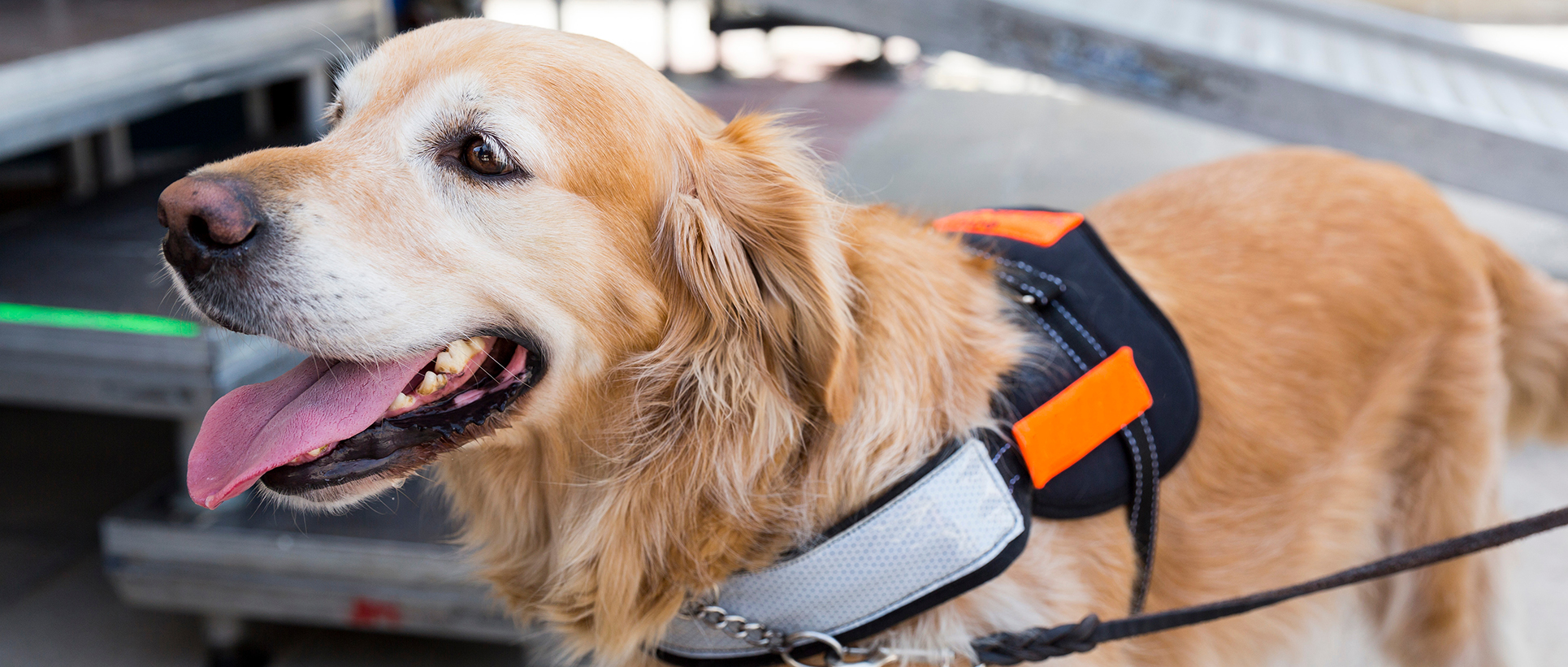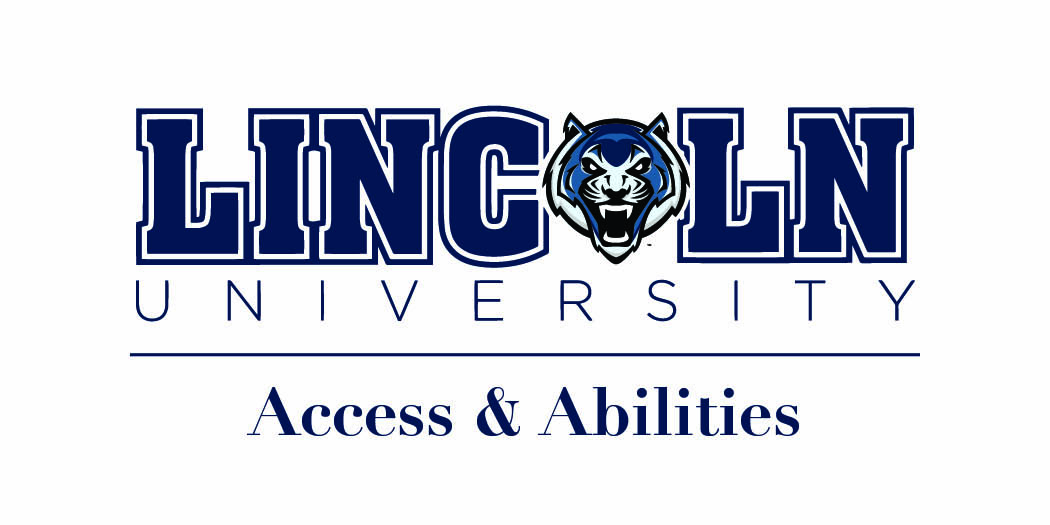Service Animals/ESA Policy and Guidelines

OCR Guidelines Regarding Service Animals
All ESA applications must be approved prior to moving into residence halls.
Definition
Service animals are trained to perform some of the functions and tasks that an individual with disabilities cannot perform for him or herself. A service animal is individually trained to work or perform tasks for the benefit of an individual with disabilities as described in the Americans with Disabilities Act. A service animal is permitted to accompany a person with a disability everywhere on campus except in situations where safety may be compromised, due to chemicals, living organisms, or health and safety issues.
Requirements & Responsibilities
The service animal must be trained and have current health records. The animal must be well-groomed and have good hygiene. It must be on a leash at all times while accompanying the handler. The handler must be in full control of the animal at all times. Consequently, the handler is responsible for the behavior and actions of the animal. The service animal may not display disruptive behaviors such as barking, whining, growling, rubbing, etc. The service animal may be excluded from the campus when that animal’s behavior poises a direct threat to the health and safety of others, if the animal is destructive, ill or not clean. LU requests shot records be provided for service animals that reside in campus housing due to the risk of being in close living quarter with other people, and potentially other service animals. We appreciate the collaboration with students who rely on service animals to cultivate health and safety as a priority within our Blue Tiger community.
Etiquette
Please do not feed or pet the animal. Do not attempt to startle the service animal in anyway. Please never attempt to separate the handler from the service animal.
Conflicting Disabilities
There could be conflicting disabilities on campus. People may have a health condition, such as allergies with animals. To address these concerns, contact the Disability Office, Thompkins Health Center. The person making the complaint must show medical documentation to support the claim. Resolution of the complaint will be handled expeditiously and as efficiently as possible, taking into consideration the needs of both parties.
Service Animals in Residence Halls
Handler must get approval to have service animal reside on campus prior to moving into a residence hall. The appropriate documentation needs to be submitted to the Disability Office. The handler is responsible for property damage caused by his or her service animal. The handler must keep the service animal on a leash at all times in the residence area except in the room.
Emergencies
In the event of an emergency, approach the service animal and handler with caution. Service animals develop a close relationship with their handler and may be very protective. The animal may be confused or distraught by an emergency, therefore it is important to direct the handler and not interfere with the service team. If the handler is incapacitated, please wait for emergency responders to arrive.
Dispute Resolution Procedure
In the event of a dispute regarding a service animal, the complainant should confer with the Coordinator of Disability Services. If the matter is not resolved, the complainant should submit a written statement addressed to the ADA/504 Grievance Committee. If the complainant remains dissatisfied with the committee’s recommendations, the dispute will be forwarded to the Vice President of Student Affairs who shall gather information, review the matter, and issue a final decision on the University’s behalf.
Service Animals vs. Emotional Support Animals (ESAs)
To ensure clarity and compliance with federal laws such as the Americans with Disabilities Act (ADA) and the Fair Housing Act (FHA), it is important to understand the distinctions between Service Animals and Emotional Support Animals (ESAs). These terms are not interchangeable, and each carries specific rights, responsibilities, and limitations.
Definition
Service Animal
Under the ADA, a Service Animal is defined as a dog that is individually trained to do work or perform tasks for a person with a disability. The tasks must be directly related to the person’s disability (e.g., guiding someone who is blind, alerting someone who is deaf, pulling a wheelchair, detecting seizures, etc.).
Emotional Support Animal (ESA)
An Emotional Support Animal provides comfort or emotional support simply by being present. ESAs do not require specific training to perform tasks and are not recognized as service animals under the ADA. However, they may be permitted in housing under the Fair Housing Act (FHA) if the person has documentation of a disability and a disability-related need for the animal.
Legal Requirements & Protections
|
Category |
Service Animal |
Emotional Support Animal |
|
Fair Housing Act |
✅ Yes (limited situations) |
✅ Yes (with documentation) |
|
Public Spaces |
✅ Yes – allowed in most public places |
❌ No – not allowed in public spaces by right |
|
Training Required |
✅ Task-specific training required |
❌ No specific training required |
Responsibilities of Handlers
For Service Animals:
- The animal must always be under control, typically by leash, harness, or voice command.
- The handler is responsible for caring for and supervising the animal.
- The animal must be housebroken and behave appropriately in public settings.
- Businesses and institutions may ask:
- Is the dog a service animal required because of a disability?
- What work or task has the dog been trained to perform?
- Residents must provide appropriate documentation from a qualified medical provider showing the need for the ESA.
- The animal must not pose a direct threat to the health or safety of others or cause substantial physical damage.
- The animal must be under control, not disruptive, and housebroken.
- Residents are responsible for cleaning up after their animal, ensuring it does not interfere with the rights of others.
- Do not pet, feed, or distract a service animal while it is working.
- Do not ask personal questions about someone’s disability.
- Respect boundaries—the animal is not a pet; it is a working partner.
- Always ask before interacting with any animal, even in a residential setting.
In some cases, individuals with disabilities may have allergies or phobias related to dogs or other animals. These are also legitimate disabilities and must be handled with care and sensitivity.
- Interactive process: If a conflict arises between someone with an ESA/service animal and someone with an allergy or other concern, staff must engage in a case-by-case interactive process to find a reasonable solution (e.g., separate areas, air purifiers, alternate housing).
Emotional Support Animals in Residence Halls
Under the Fair Housing Act, individuals with disabilities may request to have an ESA in university residence halls if:
- Animals are necessary to afford the individual an equal opportunity to use and enjoy the housing.
- The request is supported by documentation from a licensed healthcare provider.
- The animal does not create an undue burden or fundamental alteration to housing policies.
- ESAs are only permitted in the student’s assigned residence and not in classrooms, dining areas, libraries, or other public spaces on campus.
- Prior approval is required before the ESA can be brought to campus housing.
- Students must follow all housing policies, including care, cleanliness, and noise control.
Summary
|
Feature |
Service Animal |
Emotional Support Animal |
|
Trained in performing specific tasks |
✅ Yes |
❌ No |
|
Allowed in public spaces |
✅ Yes |
❌ No |
|
Allowed in residence halls |
✅ Yes (if needed) |
✅ Yes (with documentation) |
|
Documentation required |
❌ Not for access |
✅ For housing accommodations |

